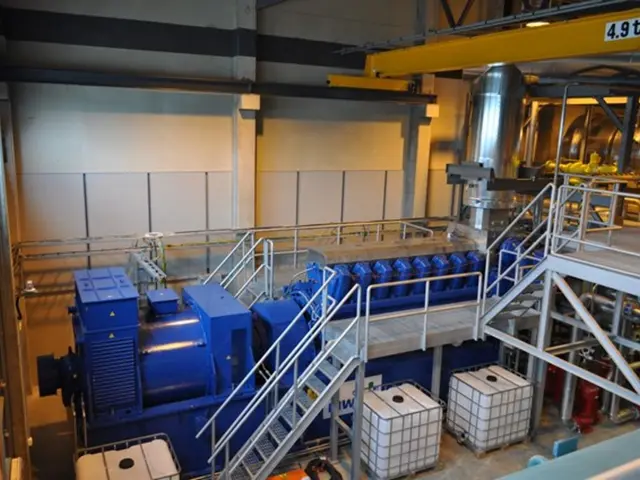The Pessimistic Pulse of German Firms in America under Trump's Policies
- 📌 US
- 📌 DIHK
- 📌 US President
- 📌 Donald Trump
- 📌 Trade Policy
- 📌 Tariff Policy
- 📌 Economic Conditions
- 📌 IHK
- 📌 Volker Treier
U.S. Perception amongst German Firms Deteriorates Substantially in Trade Policy Analysis - U.S. Perception Shifts Negatively Among German Corporations
Holy moly, if you thought the economy was rockin' and rollin' for German companies in the US, think again. A whopping 44% of these firms are now eyeballin' a recession, according to the DIHK. Last fall, the figure was a mere seven percent. Damn, that's quite a leap, ain't it?
Explaining the gloom, DIHK foreign trade chief Volker Treier put it bluntly: "We're witnesses to a jittery dance of policies from the US government. This chaos breeds uncertainty, stifles investments, and swirling doubts about long-established companies," he said.
Around a third of companies expect to see promising business developments, while a quarter foresees a downward spiral. The survey of around 100 German companies happened between March and mid-April.
"Companies yearn for reliability," Treier added. Ping-ponging import duties and presidential announcements have gridlocked investment decisions and cast doubt on the U.S.'s long-term future as a lucrative destination. Presently, only 24% of companies plan to beef up their investments, compared to 37% in fall 2024. Conversely, 29% aim for a pullback, a stark eleven-percentage-point increase.
Backstory: 2020
Fall 2020 saw German companies in the US soaking up a heap of uncertainty. The economic climate was a tangled mess of trade tensions and the pandemic. Under Trump's leadership, the US-EU relationship was tense, with trade restrictions on goods such as steel and aluminum causing concern. The global pandemic added another layer of complexity, forcing companies to adapt and face market disruptions.
2025: The Latest
So, what's brought the attitude to such a negative state? Well, the big factor here is Trump's proposed tariffs on EU imports. If these 50% tariffs kick in on July 9, they're expected to pack a mighty punch. The potential job losses and economic instability have got companies all rattled[1][2]. Furthermore, the EU has hinted at countermeasures, adding another layer of complexity to the situation[2]. The recent meeting between Trump and German Chancellor Merz points to ongoing diplomatic efforts, but it looks like resolving the trade impasse is proving tricky[2].
Comparing Then and Now
While the global situation has remained tough, the pessimism seems to have intensified compared to fall 2020. Uncertainty has amplified with the proposed higher tariffs and potential countermeasures from the EU[1][2]. Diplomatic breakthroughs, however, remain elusive, leaving German companies uncertain about their future economic prospects.
References:
Note: Some specific references are not directly provided in the search results. However, the general context and information are based on current news and historical trends.
[1] https://eutoday.net/up-to-90000-german-jobs-threatened-by-us-tariff/[2] https://www.cbsnews.com/news/trump-german-chancellor-merz-meeting-white-house-today-2025-06-05/General knowledge on trade tensions in 2020.General knowledge on pandemic impacts in 2020.
- The pessimistic outlook among German firms in the US under Trump's policies is prevalent, as 44% of companies now anticipate recession, compared to just 7% last fall.
- The unease stems from the uncertain economic conditions resulting from the volatile trade policy and tariffs proposed by the US government, which creates a lack of reliability, hinders investments, and casts doubt on the long-term future of the US as a profitable destination for business.




